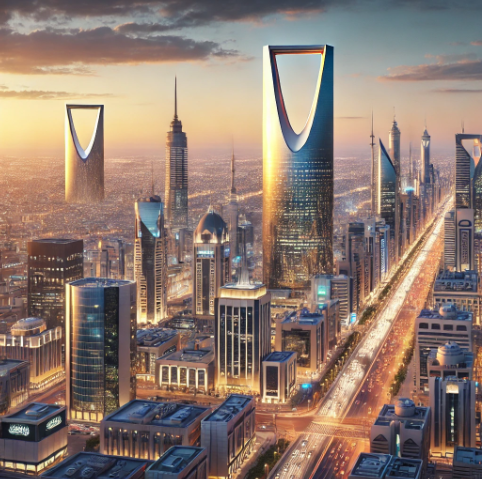
Saudi Arabia: from black oil to the service economy

Growth driven by the non-oil sector
According to data from the General Authority for Statistics (GASTAT), Saudi GDP growth in 2024 was largely driven by a 4.3% increase in non-oil activities and a 2.6% rise in government activities. This trend is in line with the objectives of Vision 2030, which aims to reduce the country's dependence on hydrocarbons and build a more diversified and resilient economy. On a quarterly basis, the fourth quarter of 2024 was particularly buoyant, with real GDP up 4.5% on the same period of the previous year. In detail, non-oil activities jumped by 4.7%, while the oil sector rebounded by 3.4% after several months of slowdown. Growth in the public sector was a more moderate 2.2%.
These figures for the evolution of Saudi GDP in 2024 are by no means insignificant, and illustrate the ambitious strategy pursued by the government to transition from an economy based on black oil to one based on services, tourism and technology. As proof, despite a 6.5% drop in oil production over the first nine months of the year, the Saudi economy has managed to maintain a positive growth rate, proving that the transition to a more diversified model is well underway.
A cautious and visionary fiscal policy
Alongside this diversification, Saudi Arabia is adopting a rigorous budgetary approach to ensure the country's economic stability. For example, the 2024 budget forecast expenditure amounting to 1.25 trillion riyals, against estimated revenues of 1.17 trillion riyals. Despite this slight budget deficit, estimated at 1.9% of GDP, the country's financial situation remains stable, thanks to government reserves and controlled public debt. A few months ago, Finance Minister Mohammed Al-Jadaan reaffirmed that these economic policies will enable Saudi Arabia to weather any economic turbulence and ensure a sustainable growth trajectory.
The reforms undertaken by the kingdom as part of Vision 2030 are beginning to show results, with the non-oil sector emerging as a key driver of the economy. The dynamism of the services, tourism and entertainment sectors, as well as the ramp-up of major infrastructure projects, bear witness to a far-reaching economic transformation. Although oil remains a strategic pillar, Saudi Arabia is building a more resilient economic future, less dependent on fluctuations in the energy market. While the transition to a diversified economy will still take several years, the figures for 2024 show that the gamble of a long-term exit from hydrocarbons can be won. The country is thus moving forward with determination into a new era, in which innovation, investment, decarbonization and openness to the world will be the keys to its economic success..
Sources :

